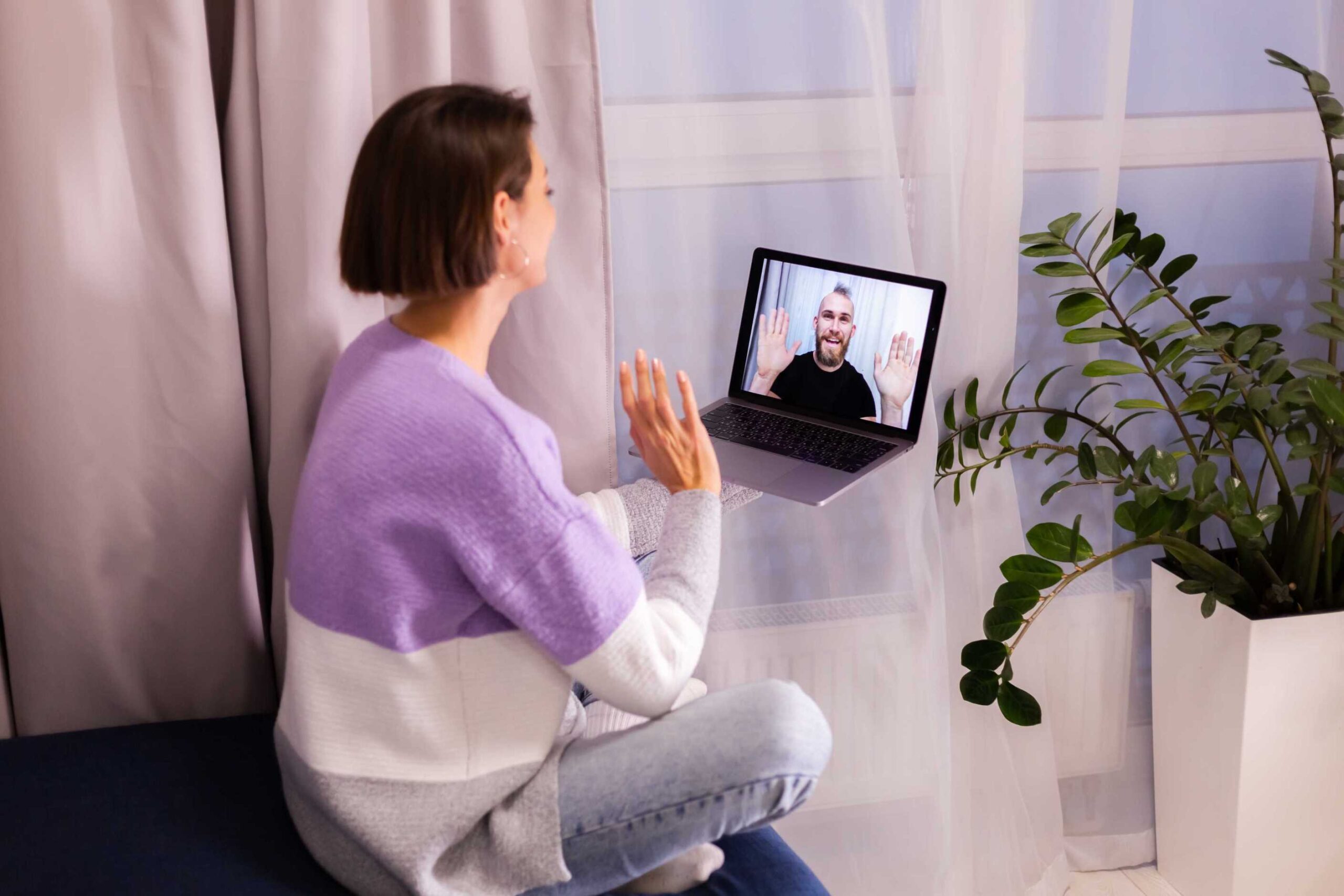Anxiety, a common mental health concern, can manifest in various ways, including caregiver fatigue, grief and loss, postpartum depression, and challenges related to disabilities or new diagnoses. These experiences can significantly impact your overall well-being and daily life.
Seeking professional help is crucial for managing anxiety and improving your mental health. Fortunately, virtual counseling offers a convenient and accessible option that can provide the support you need, regardless of your location or schedule. In this guide, we’ll explore the benefits of virtual counseling and how it can help you overcome anxiety and related challenges.
Understanding Virtual Counseling
Virtual counseling, also known as online therapy, is a growing field that allows individuals to connect with licensed therapists through video conferencing or phone calls. This technology-driven approach offers a convenient and flexible way to receive mental health support, especially for those who may face geographical, scheduling, or mobility challenges.
One of the significant advantages of virtual counseling is its accessibility. It eliminates the need to travel to a therapist’s office, making it easier for people in remote areas or with limited transportation options to access care. Additionally, virtual therapy often offers more flexible scheduling options, allowing individuals to choose times that fit their busy lives.
Another benefit of virtual counseling is its potential for privacy and comfort. Many people may feel more comfortable discussing personal issues in the privacy of their own homes, which can enhance the therapeutic process. Moreover, virtual counseling can reduce the stigma associated with seeking mental health help, as it allows individuals to maintain a sense of anonymity.
How Virtual Counseling Can Help with Anxiety
Virtual counseling offers a personalized approach to addressing anxiety and related challenges. Therapists can tailor treatment plans to meet your specific needs, whether you’re dealing with caregiver fatigue, grief and loss, postpartum depression, or challenges associated with disabilities or new diagnoses.
One of the effective techniques used in virtual counseling is cognitive behavioral therapy (CBT). CBT focuses on identifying and challenging negative thought patterns that contribute to anxiety. By learning to recognize and replace these unhelpful thoughts, you can develop healthier coping mechanisms and reduce anxiety symptoms.
Another valuable technique is dialectical behavior therapy (DBT). DBT emphasizes mindfulness, distress tolerance, emotion regulation, and interpersonal effectiveness. These skills can help you manage intense emotions, cope with stress, and improve your relationships.
In addition to therapeutic techniques, virtual counseling can also help you develop healthy coping strategies for anxiety. This may involve practicing relaxation techniques like deep breathing, meditation, or mindfulness exercises. You may also explore journaling or other creative outlets to express your emotions and reduce stress.
Virtual therapists can also help you identify and address the underlying causes of your anxiety. By exploring past traumas, unresolved grief, or biological factors, you can gain a deeper understanding of your mental health challenges and develop more effective coping strategies.
Overcoming Challenges and Finding the Right Therapist
While virtual counseling offers many benefits, it’s important to address potential concerns and find a therapist who is a good fit for your needs.
Privacy and security are top priorities in virtual counseling. Therapists use secure platforms to protect your personal information and ensure confidentiality. It’s essential to choose a therapist who prioritizes data security and follows ethical guidelines.
Technical difficulties can occasionally arise during virtual sessions. However, most therapists are equipped to handle these issues and provide alternative solutions if needed. It’s helpful to have a backup plan in case of technical problems, such as a phone number or alternative communication method.
Finding the right therapist is crucial for a successful therapeutic experience. When searching for a virtual therapist, consider their experience, specialization, and compatibility with your needs. Look for therapists who have experience working with individuals dealing with anxiety, caregiver fatigue, grief and loss, postpartum mental health, or disabilities and new diagnosis adjustment.
It’s also important to feel comfortable and connected with your therapist. Consider scheduling a brief consultation to assess their personality, approach, and whether you feel a positive connection. Remember, the therapeutic relationship is essential for effective treatment.
Frequently Asked Questions (FAQ)
Q: Is virtual counseling as effective as in-person therapy?
A: Yes, studies have shown that virtual counseling is equally effective as in-person therapy for many mental health conditions, including anxiety. The therapeutic relationship is key, and with the right therapist, virtual counseling can provide significant benefits.
Q: How do I know if virtual counseling is right for me?
A: If you’re struggling with anxiety and find it difficult to attend in-person sessions due to location, schedule, or other reasons, virtual counseling can be a great option. It offers flexibility and accessibility, making it easier to get the support you need.
Q: What if I’m not comfortable with technology?
A: Therapists can provide guidance and support to help you get comfortable with using virtual platforms for counseling sessions. Many therapists use user-friendly platforms that are easy to navigate.
Q: Can I get help with specific challenges like caregiver fatigue or postpartum depression through virtual counseling?
A: Absolutely! Virtual therapists are trained to address a wide range of mental health issues, including those related to specific life circumstances. They can provide tailored treatment plans and coping strategies to help you navigate these challenges.
Q: How do I find a qualified virtual therapist?
A: You can search online directories, ask for recommendations from healthcare providers, or contact mental health organizations in your area. Look for therapists who specialize in anxiety and have experience working with individuals facing specific challenges like caregiver fatigue, grief and loss, postpartum mental health, or disabilities and new diagnosis adjustment.

